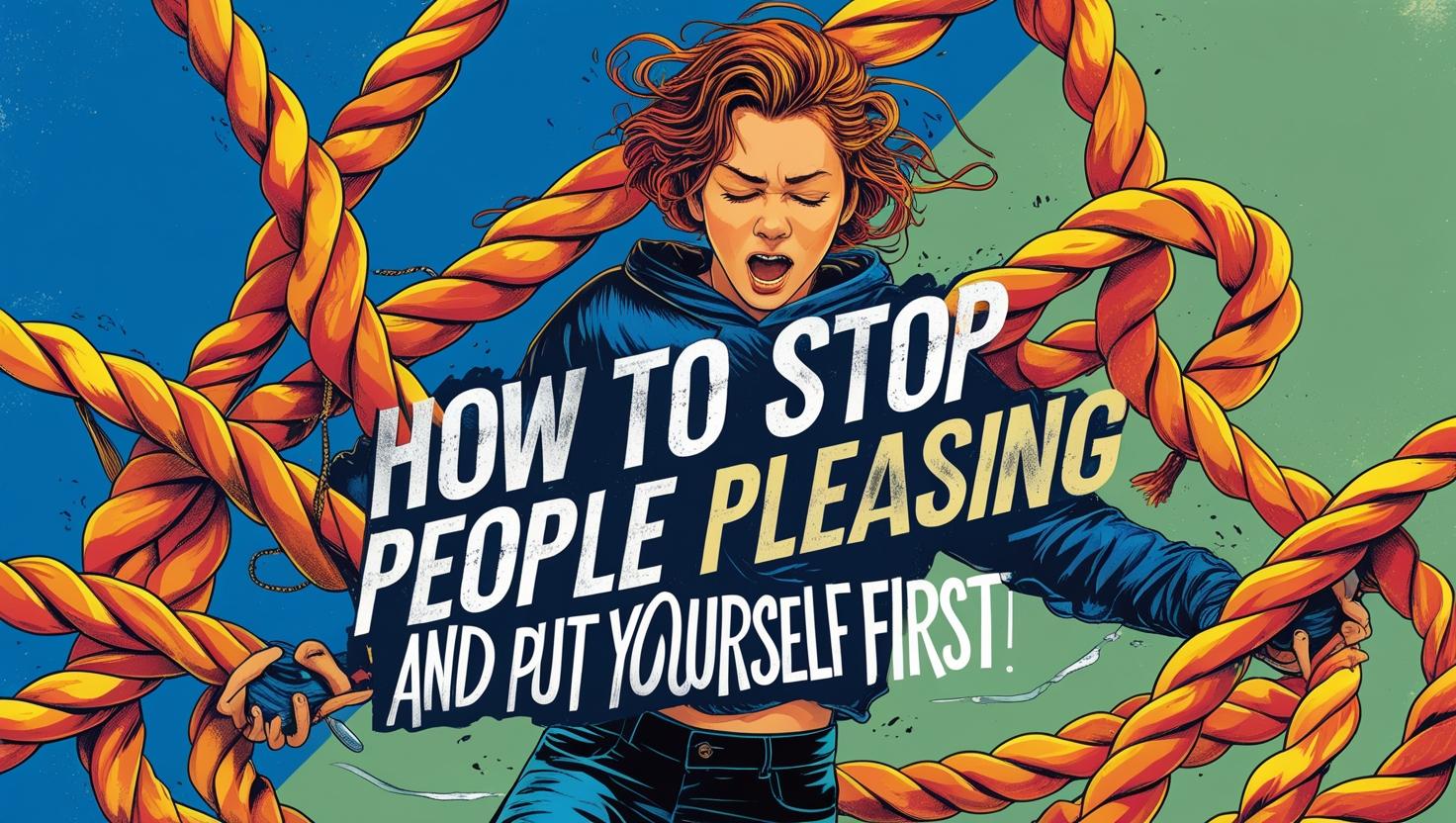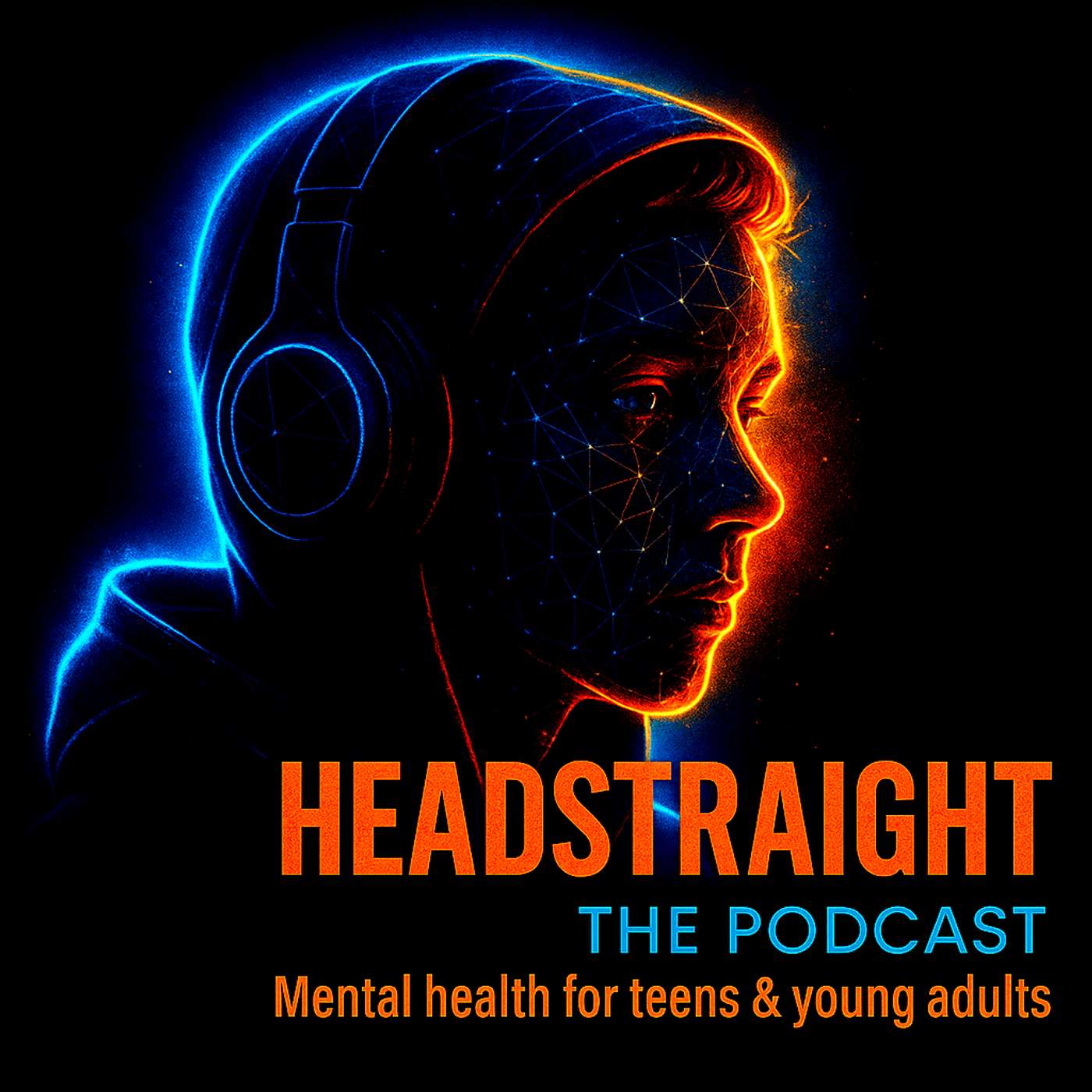How to Stop People Pleasing and Put Yourself First

How many times have you said “yes” when every part of you was screaming “no”?
You’re already tired, stressed, or barely keeping it together — but you agree anyway. You take on the extra work, show up when you don’t have the energy, and keep everyone else comfortable while quietly running yourself into the ground.
And when you finally think about putting yourself first?
That heavy, familiar wave of guilt rolls in. The kind that makes you feel selfish, rude, or ungrateful. So you back down. Again.
If this cycle sounds familiar, then you need to read on.
This episode of Headstraight is about exactly that — people pleasing. Not the harmless, “I just like to help” kind, but the automatic, self-erasing habit that leaves you resentful, exhausted, and unsure where you end and everyone else begins.
🎧 Listen to the episode here:
Prefer to listen to the episode using your prefered platform?
People pleasing isn’t a personality trait — it’s a survival tactic
You weren’t born with it.
It’s something you learned, often without realising.
If you grew up in a home where saying “no” meant conflict, rejection, or disappointment, you learned early to smooth things over. If approval came when you were helpful, agreeable, or invisible, your brain started linking “keeping the peace” with “staying safe.”
It works in the moment — it avoids arguments, keeps relationships stable, and makes you feel needed.
But here’s the problem: the habit never checks if the cost to you is worth it. And over time, you forget how to check for yourself.
Why saying “no” feels so risky
For most people pleasers, the problem isn’t that they don’t know how to say no — it’s that it feels dangerous.
Your nervous system has been trained to believe that your value depends on being useful, easy, and available. So when you even think about refusing someone, your body reacts like you’re walking into a fight.
That’s why you:
Say yes before you’ve even thought it through
Over-explain and apologise when you turn something down
Worry endlessly about whether someone’s upset with you
Avoid setting limits altogether, because it just feels easier
It’s not laziness. It’s not weakness. It’s conditioning.
The guilt trap
Here’s the thing about guilt: it’s not a reliable measure of whether you’ve done something wrong.
It’s a measure of how far you’ve stepped outside your old comfort zone.
If you’ve always been available 24/7, then taking two hours for yourself will feel “selfish” — even though it’s not. If you’ve always put your needs last, then putting them first will feel “wrong” — even though it’s healthy.
Think of guilt as a faulty alarm system. It’s loud at first, but it quiets down the more you ignore it.
How to start putting yourself first (without feeling like you’re burning bridges)
This isn’t about swinging to the other extreme and cutting everyone off. It’s about learning to factor yourself into the equation.
1. Pause before you answer
When someone asks for something, resist the urge to give an instant yes. Try:
“Let me check and get back to you.”
“I’ll need to think about that.”
It gives you space to ask:
Do I actually want to do this?
Do I have the time or energy?
What will it cost me if I say yes?
2. Keep your “no” short and clear
You don’t owe a five-paragraph essay.
Short, clear boundaries sound like:
“I’m not able to take that on right now.”
“That doesn’t work for me this week.”
“I need to pass on this one.”
3. Block out “non-negotiable” time
Book time for yourself in your calendar and treat it as seriously as you would a work meeting or family commitment. If someone asks for that slot, you can honestly say:
“I already have plans.”
Because you do — with yourself.
4. Expect discomfort, but don’t act on it
When guilt rises, remind yourself:
“This isn’t harm — it’s self-care.”
“I’m allowed to disappoint someone else to be fair to myself.”
“Awkward is part of change.”
People pleasing in different areas of life
At work: You’re the “safe pair of hands,” which means you get all the extra work — even when you’re drowning.
With friends: You cancel your own plans to fit theirs, and they don’t even know it’s a sacrifice.
With family: You’re the one who keeps everyone happy, even if it means ignoring your own needs.
In relationships: You agree to things that don’t sit right because you’re scared of conflict or rejection.
Noticing where you do it is half the battle.
A challenge for the week ahead
1. Spot one people pleasing habit — maybe it’s over-apologising, saying yes instantly, or not voicing your opinion.
2. Interrupt it once — pause before saying yes, voice what you actually want, or set a small limit.
3. Protect one slot of time for yourself — and don’t give it away.
Why this matters
When you stop people pleasing, you’re not becoming colder or less kind. You’re becoming authentic. You’re building relationships that are based on truth, not just on keeping the other person comfortable.
And here’s the bonus: the more you put yourself first in healthy ways, the more you can give — willingly, joyfully, and without resentment — when you do choose to say yes.



